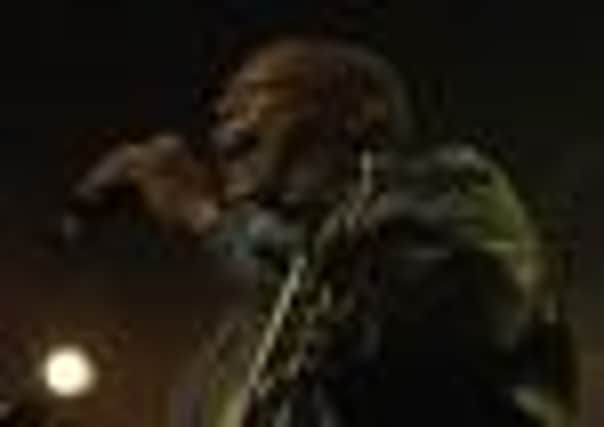Interview: Hugh Masekela


Hugh Masekela holds the secret to a long and happy life – laugh a lot – and always be on the make.
“I’ve made you laugh four times now in ten minutes – I should be charging you,” says the jazz legend from his home in South Africa.
“If I make you laugh one more time, I will invoice you.”


He’s only half joking.
Advertisement
Hide AdAdvertisement
Hide AdMasekela has toured the world, been intrinsically linked with the anti-apartheid movement in his home country and played alongside some of the world’s greatest musicians in a career that spans over half a century.
Born in South Africa in 1939, he has lived a life and then some. He lived in exile from South Africa for three decades before returning to his home country when the apartheid regime fell.
His song Bring Him Back Home, released while in exile in England in 1987, became an anthem of the anti-apartheid movement.
In between, he played on Paul Simon’s Graceland, alongside Ladysmith Black Mambazo, topped the US billboard charts and spread the word of South Africa’s plight with his skilful trumpet playing, selling out concerts from the Royal Albert Hall to Carnegie Hall.
Advertisement
Hide AdAdvertisement
Hide AdHis music has always been connected with the struggle of his home country. “I play music because I love it. Everything else is coincidental,” he insists.
How can it be coincidental to play such an important role in bringing down one of the most oppressive regimes in human history?
“I went into music because I love music and have done all my life. I was an infant when I first realised I was a musician. As a musician you describe your own life and the fact that I am South African means that was the life I was describing with my music. It’s all a coincidence.”
Coincidence or not, that Masekela has been there, playing his music and telling the stories of South Africa and oppression through his trumpet, has been significant in world music.
Advertisement
Hide AdAdvertisement
Hide AdThe musician comes to Yorkshire next week to play at the Grassington Festival.
Given that he has reached a ripe old age, is he not tempted to take life a little more easy and maybe lay off the touring, which he appears to do incessantly?
“Why do you want me to stop playing? Will you pay me to stop touring?” is his immediate response.
That’s not really the point of the question, more that, having reached his eighth decade he has surely earned a little down time.
Advertisement
Hide AdAdvertisement
Hide Ad“I believe everybody has to work until they die. Unless they are a lazy person. I have been a musician since I was an infant and as long as I can still play, I will.
“I produce records in my own studio and produce for other artists too. I still make music for film and television and theatre. I’ve got my first novel coming out, I’m a gardener and do a lot of gardening when I am not touring. I have no time for idleness and none of my friends are idle people.”
It’s easy to understand that a man who has been through such extraordinary times in his life and achieved so much, would consider sitting around doing nothing simply not an option.
As a youngster at a Johannesburg boarding school run by missionaries, anti-apartheid campaigner Trevor Huddleston gave a young Masekela a trumpet – which had once been owned by Louis Armstrong. He played incessantly, forming a band with friends, but as the brutality of the apartheid regime continued, particularly after the Sharpville Massacre in 1960, Masekela realised he had to leave the country and with the help of Trevor Huddleston and his friends Yehudi Menuhin and Johnny Dankworth, secured a place at London’s Guildhall School of music.
Advertisement
Hide AdAdvertisement
Hide AdHis great skill with the trumpet was soon spotted and he travelled then to New York to train. By the beginning of the 1970s he had gained international fame, selling out festivals across America. The recordings of his music helped spread the word of the great musician, but it is live on a stage that he belongs.
“I go to work every day, it’s the circus – because I’m a musician, I travel, take my music, it’s how I make a living.
“The records mean that I get to play in front of people, it makes me happy and that is the secret to having a long life.
“The other secret is to laugh.”
Highlights of this year’s Grassington Festival
This weekend the Grassington Festival starts to bring out the big guns ahead of Masekela’s appearance.
Advertisement
Hide AdAdvertisement
Hide AdTonight: Pasadena Roof Orchestra, who have played together for 40 years.
Alan Davies: Jonathan Creek and QI star brings his new stand up show to Grassington. Thursday, June 28.
Billy Ocean: One of the biggest music stars of the 1980s is supported in a live appearance by Jen Armstrong. Saturday, June 30.
Grassington Festival: various venues, to www.grassington-festival.org.uk